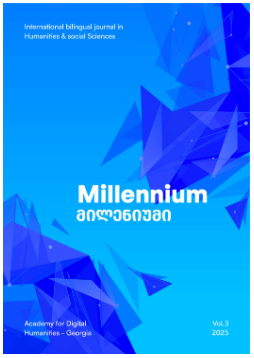Sovietisms: Metaphorical Representation of the Soviet Union (The case of Georgian political discourse)
Main Article Content
ანოტაცია
In specialized literature, expressions that metaphorically reflect the Soviet Union are referred to as Sovietisms. The Georgian language is particularly rich in Sovietisms, a fact that has a historical basis: in 1921, the Red Army fully occupied Georgia. The 70-year period of forced unification within the Soviet Empire left a lasting impact on the Georgian language. The names and surnames of many Soviet leaders served as the basis for new expressions. This paper discusses several of them: “Aurora’s Volley”, “Brezhnev’s Kiss”, “Denikin’s Time”, and “Stakhanov-like”. The paper cites illustrative material from contemporary Georgian political discourse. A conceptual analysis of specific cases is presented in two directions: a) identifying metaphorical structures and showing how a metaphor shapes a specific idea, and b) highlighting cultural significance and demonstrating how metaphors express the political positions of a given speech community. The results of the study show that in modern Georgian political discourse, Sovietisms are not merely ideological metaphors but also instruments of so-called hate speech. These expressions are used in explicitly negative contexts, primarily to describe pro-Russian sentiments. They serve as tools for ridicule, criticism, or even verbal attack against an interlocutor or the subject of discussion.
